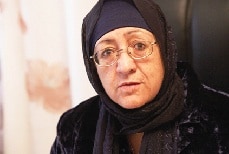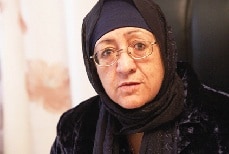The Biennial Forum, now in its 10th year of operation, facilitates the establishment of international groups working on projects such as “Men in Early Education” or “Nature-Based Outdoor Spaces for Children”. At the forum, apart from presentations that educated about Indigenous Hawaiian culture or methods of teaching, there were presentations from group leaders that explained projects being undertaken in many parts of the world.
One project from Afghanistan that is empowering women and educating women and children received an emotional standing ovation. Dr. Sakena Yacoobi delivered a heart- rending account
There were also many stories from indigenous peoples who are trying to reclaim their heritage lost to colonial invaders who forced them to disregard their own culture and adopt western values and ideals.
Those indigenous stories were strikingly similar, even though they came from the aboriginal persons of Australia, the native Canadian Indians or the indigenous Peruvians or Hawaiians.
of dire situations of poverty in Afghanistan and the successes of the foundation she started in 1995, the Afghan Institute of Learning (AIL), to help alleviate suffering in Afghan women and children. Mr. Farid Abu Gosh spoke of his challenging work with Palestinian children. Other projects that left a lasting impression on my mind included the “Kit-in-a-Bag” school from Sri Lanka, where facilitators actually carry their resources in a bag to teach children from poor villages. Yet another interesting idea involved children studying fractions by piecing together cut up leaves on a dirt floor.
There were also many stories from indigenous peoples who are trying to reclaim their heritage lost to colonial invaders who forced them to disregard their own culture and adopt western values and ideals. Those indigenous stories were strikingly similar, even though they came from the aboriginal persons of Australia, the native Canadian Indians or the indigenous Peruvians or Hawaiians. An important message in all the stories told was that education is crucial in order to change the condition of a people and there is always a way to educate a group of persons. There must, however, be one or more knowledgeable, committed persons dedicated to the exercise to make it a success.
Much of what I heard and experienced was very much in keeping with the advice of Sheikh Syed Mubarik Ali Shah Gilani to his talibeen (students). He advised that those assigned to offices of education or planning and development, for example, should be committed to producing and reporting on the results of their efforts. Committee members should be ever planning and working hard to achieve success. The reports at the World Forum of successful projects worldwide, in many instances against all odds, certainly showed me that we all can succeed even though we may have very little resources. The key ingredients seem to be commitment, hard work, creativity and faith in Allah’s promise of help to those who ask of Him.


Dr Sakeena Yakobi






